From 2 master's degrees to 15 billion scholarship
Dang Vo Hiep (born 1995, Ho Chi Minh City) is a master of Artificial Intelligence (AI) at Yeshiva University (New York).
Hiep said he will graduate in April this year. Previously, Hiep completed a bachelor's degree in Finance in Vietnam and a master's degree in Computer Science - Mathematics at Liverpool John Moores University, UK.
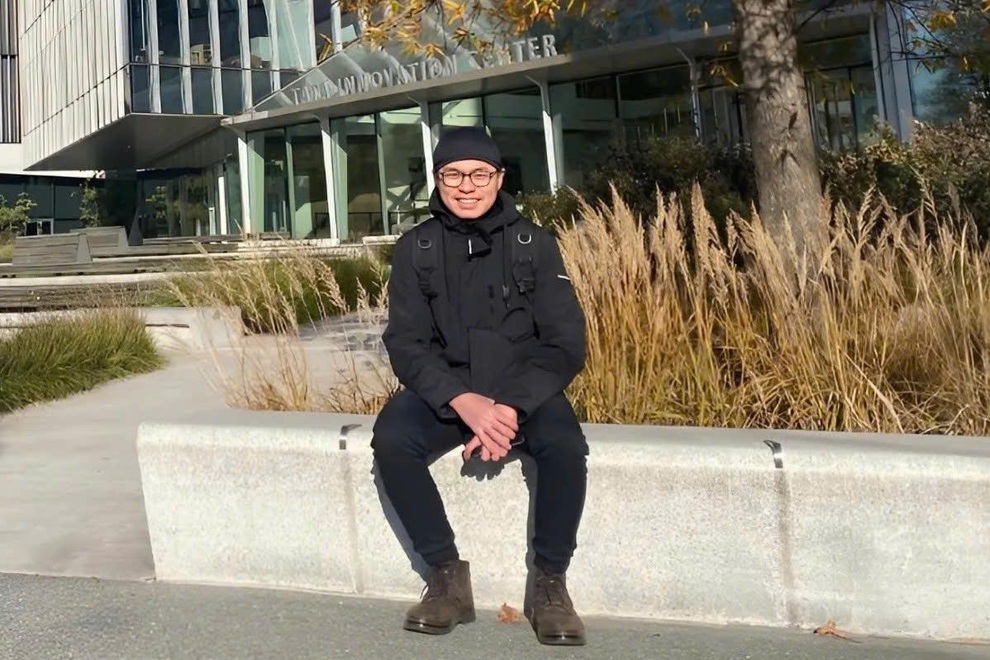
Hiep in his first days in America (Photo: NVCC).
After completing his first master's degree, Hiep continued his education in the US with a partial scholarship to pursue a second master's degree in Artificial Intelligence.
Hiep has a background in machine learning, specifically in two areas: operator learning and physics-informed machine learning. His research interests are in applying these methods to fluid mechanics systems and environmental modeling.
Recently, Hiep was honored to receive a full doctoral scholarship from the University of Virginia (one of the top 8 public universities in the US) and the University of Missouri with a total value of more than 15 billion VND.
He will pursue a major in applying Artificial Intelligence and Machine Learning to predict extreme weather events and prevent natural disasters and floods.
Hiep received a full doctoral scholarship worth up to 15 billion VND (Photo: NVCC).
This scholarship covers full tuition, health insurance, monthly stipend and costs of attending scientific conferences for the entire 5 years of research.
Hiep said that in a competitive academic environment, he understood that one to two years of master's degree could not compare to four years of university in the right major. Therefore, he decided to pursue a second master's degree in the US to accumulate the necessary credits.
After two master's programs, Hiep completed 72 credits ranging from Computer Science to Data Science, qualifying him to apply for a doctoral scholarship later.
The Secret to Winning Big Scholarships During Budget Cuts
Sharing about his journey to conquer a doctoral scholarship, Hiep said: "I think I'm a bit lucky. Up to now (March 2025), I have received offers from three schools, including the University of Virginia and the University of Missouri, offering full scholarships with salaries.
This year, the US government cut funding for science, making the number of scholarships fewer and the competition more intense.
Hiep and members of the research group on applied mathematical modeling in the environment at Ho Chi Minh City University of Technology under the guidance of Associate Professor, Dr. Bui Ta Long (Photo: NVCC).
Looking back, Hiep realized that all the admission offers he received came from research groups that were really relevant to his field. These were places where he had spent time researching carefully and had direct interviews with professors to discuss his research ideas in advance.
On the contrary, for schools where you only apply through a general process, without careful investment to demonstrate suitability, the success rate is much lower.
When looking at the list of doctoral students at American schools, Hiep noticed that most of them had impressive profiles, graduating from prestigious universities in the US or Europe in the right major.
For a candidate with a major change profile like Hiep, if he does not invest time to thoroughly research his research direction and clearly present how he can contribute, his profile will have difficulty standing out from other candidates.
"In short, a PhD scholarship is not really a race for scores or number of articles, but rather finding the right person, the right research group, and convincing them that you will bring value," Hiep commented.
From Finance to Data Science Because of One Book
Coming from the finance industry, this 9X guy gradually realized his strong passion for Artificial Intelligence and Machine Learning. However, the gap in expertise was too large, so Hiep spent a year self-studying math, programming and doing small personal projects to gradually enter this field.
Hiep's first turning point was when he applied for a Data Analyst position at a securities company in Vietnam. With a solid financial background and gradually improving technical knowledge, he quickly asserted his ability.
During nearly three years of working, Hiep rose to the position of data analysis team manager, directly building automated analysis and forecasting systems based on the database that the team developed and managed.
"Looking back at the 3 years of work, it helped me develop programming and data management thinking at the enterprise level. The job also brought in significant financial resources, helping me cover the cost of two master's degrees, after deducting the scholarship," Hiep shared.
In parallel with his work, Hiep also joined a research group at Ho Chi Minh City University of Technology, researching the application of machine learning in inverse problems to solve environmental problems and waste management. This was the stepping stone that helped him gradually move from finance to scientific and environmental issues.
It took Hiep 6 years to change himself. However, he realized that the big turning points in his life actually only happened in a few short moments.
"One of those moments was when I read the lectures of Mr. Vu Huu Tiep. At that time, I decided that I would pursue the path of machine learning.
At that time, machine learning techniques were still in their infancy and not as sophisticated as they are now. However, it was the basic, intuitive algorithms that helped me realize my true passion for this field," Hiep confided.
Hiep said he also clearly remembers the first time he read "An Introduction to Statistical Learning" published by Springer. At that time, people still used R to illustrate algorithms, a language that is gradually becoming obsolete today.
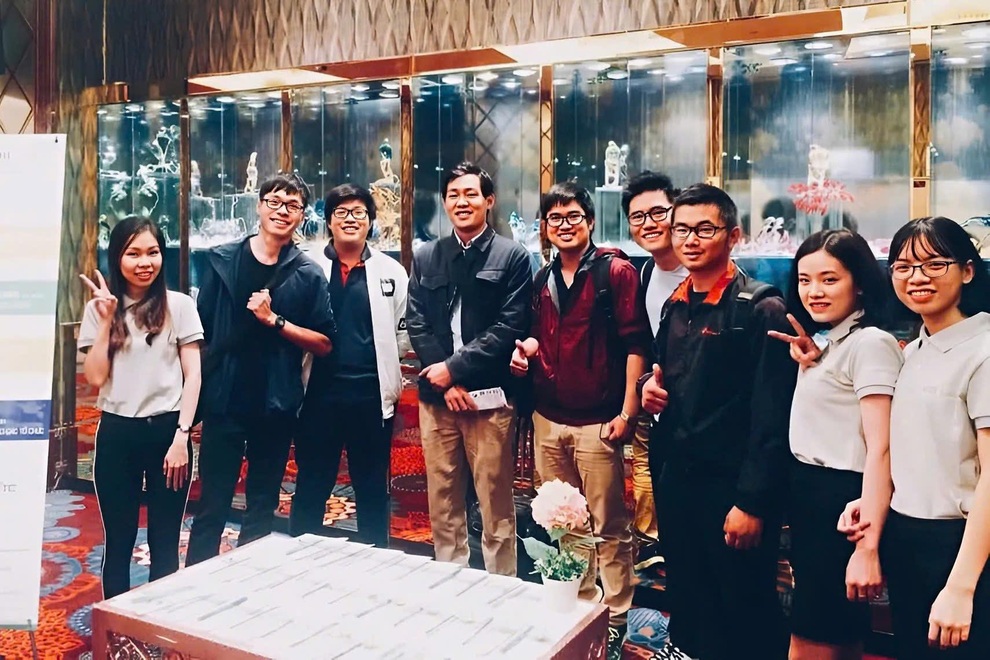
Hiep took the CFA financial certification exam in 2017 (Photo: NVCC).
What impressed Hiep, however, was not the tools but the way scientists could turn lifeless data into meaningful models, generating predictions and insights.
"For me, it was a completely new horizon. At that time, I decided to stop studying finance even though I had achieved CFA Level 2 (a globally recognized financial analysis certificate in the field of finance, investment and fund management) to completely switch to data science," Hiep said.
Shipping costs more than the book
Hiep said that when he quit his corporate job, some friends or acquaintances looked at him with pity. "Luckily, I always had my mother and brother supporting me on this journey.
At that time, I knew very clearly what I was doing. Now, looking back, I am grateful that I was strong enough to pursue the path I wanted to the end," Hiep shared.
When he decided to pursue a completely different field, Hiep was forced to learn from scratch. Thanks to that, he realized that the ability to learn by himself and practice discipline is the most important thing.
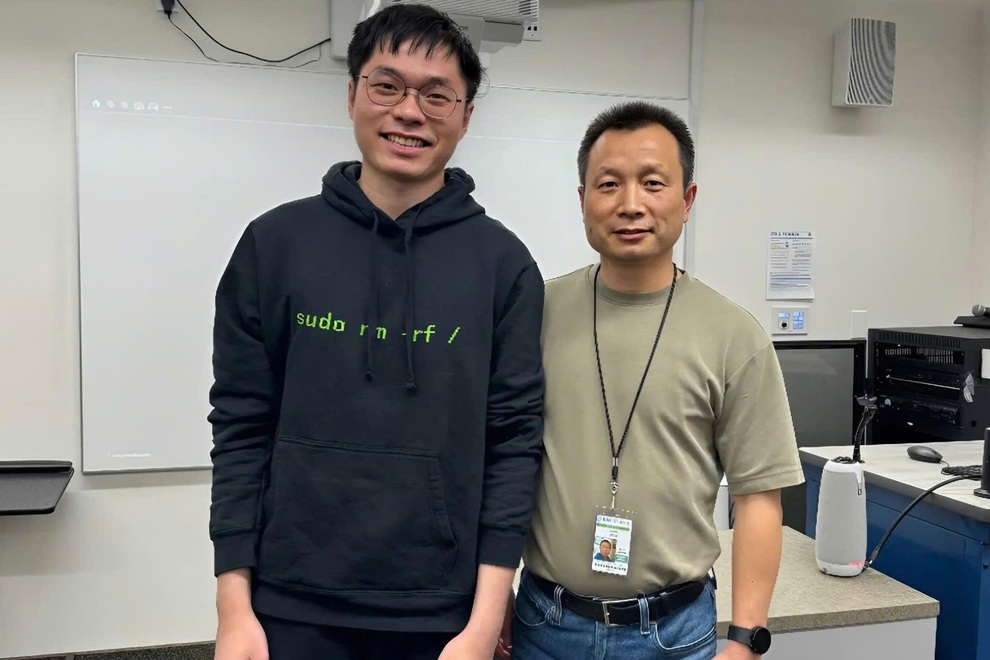
Hiep took a photo with Professor Jiang (Jay) Zhou of the Department of Artificial Intelligence at Yeshiva University (Photo: NVCC).
Hiep still remembers the nights he stayed up until 2-3am to devour every O'Reilly book on programming, then diligently read thick books on analysis and linear algebra.
At that time, even though he had just graduated and his salary was not high, every month he spent 4-5 million VND to buy books from Amazon while the shipping cost was more expensive than the price of the books, Hiep recalled.
However, knowledge alone is not enough. Hiep soon realized that if he wanted to go far in his research, he needed a solid academic foundation. At first, Hiep simply thought: "Let your ability prove itself." But reality does not work like that.
"In the field I pursue, a formal degree is not only a prerequisite for pursuing serious research. It also opens doors that mere ability is sometimes not enough to reach," Hiep said.
Before deciding to pursue his passion, Hiep chose to work for 3 years before continuing his studies. "I think the most important reason for choosing to work before continuing his studies is money because this is something that can kill many dreams if not prepared enough. My family is not well off so this issue is even more important.
During my three years of working, I always tried my best to make use of the technologies I learned myself to optimize my work. Thanks to that, I was promoted quickly and the money I earned was probably enough to buy a small piece of land or an apartment in Ho Chi Minh City, but I decided to use it for my dream of studying abroad," Hiep confided.
More importantly, his time working helped Hiep make valuable connections. The General Director and Deputy General Director wrote letters of recommendation to help Hiep apply for a master's scholarship in the US. Looking back, Hiep knows he was lucky to have the opportunity to both study and work, solidly preparing for his future research career.
Three years not only helped Hiep financially but also gave him confidence and systematic thinking to pursue his passion.
As a witness to Vo Hiep's journey to win a scholarship, Dr. Tran Quoc Thien (PhD at Virginia Tech University) shared: "To me, Hiep is a young man with great ability, determination and willpower. Besides his intelligence, he also has the ability to quickly adapt to new environments and knowledge. This helps Hiep work effectively in many different fields."
According to Dr. Tran Quoc Thien, Vo Hiep is like a gem that shines brighter the more it is polished, all of Hiep's efforts and hard work have been duly rewarded. I myself feel very happy and proud to accompany him on this journey.
When he went to the University of Virginia to meet his advisor, Hiep heard a very meaningful quote: "If you work hard, the universe will answer." Hiep believes that this motto is true for him and will also be true for anyone who dares to pursue their dreams.


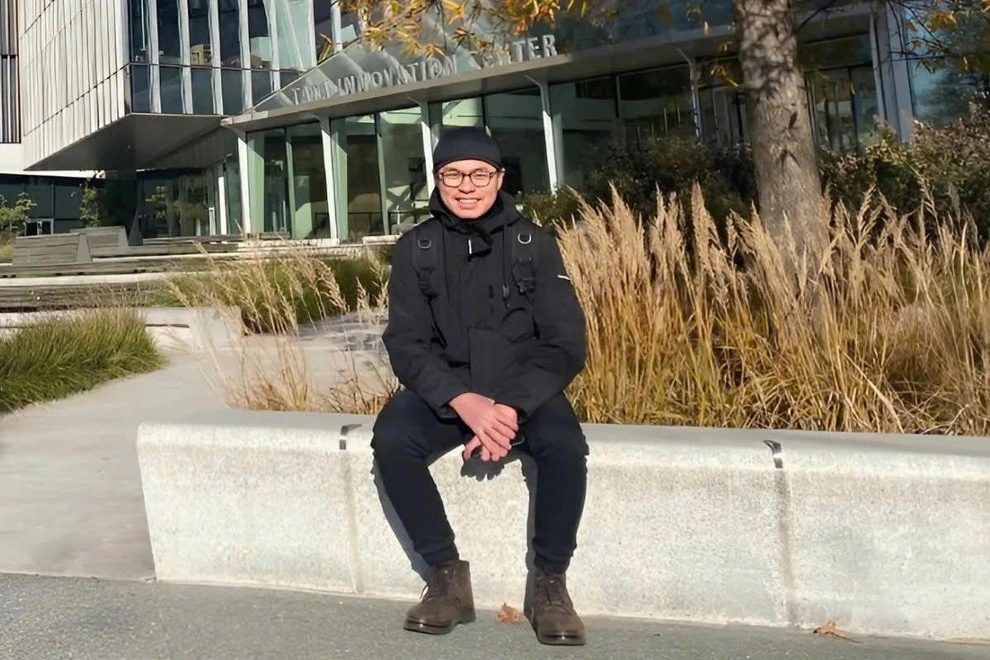
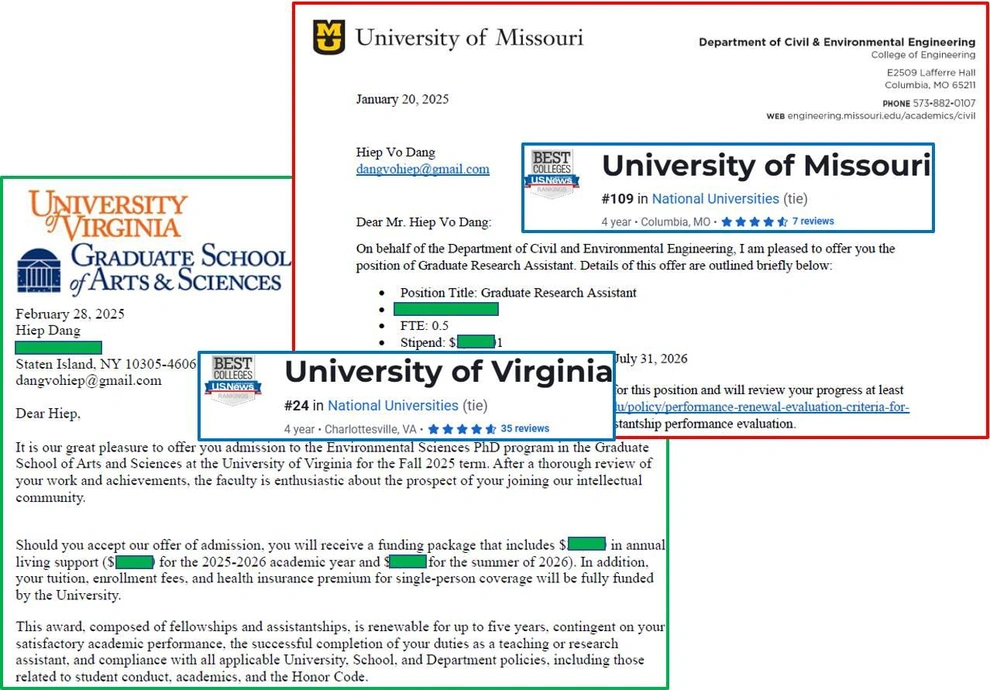
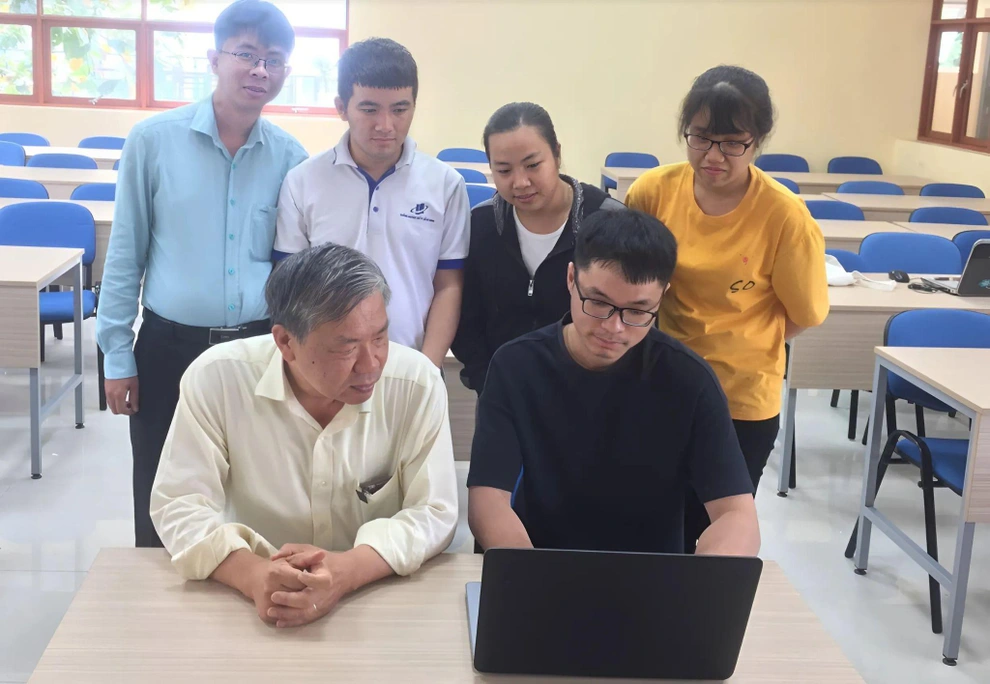
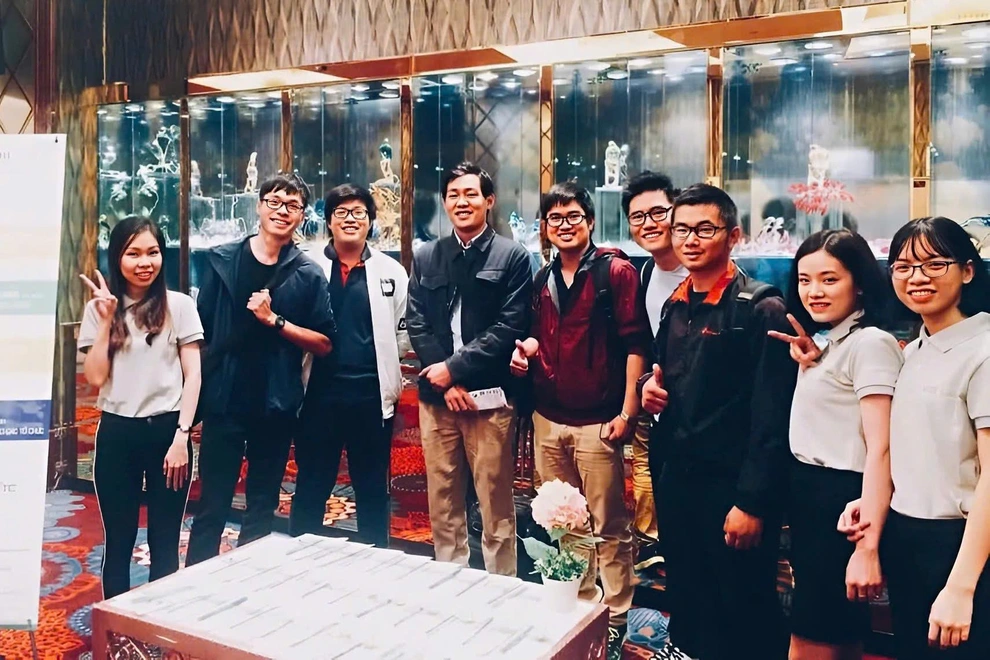
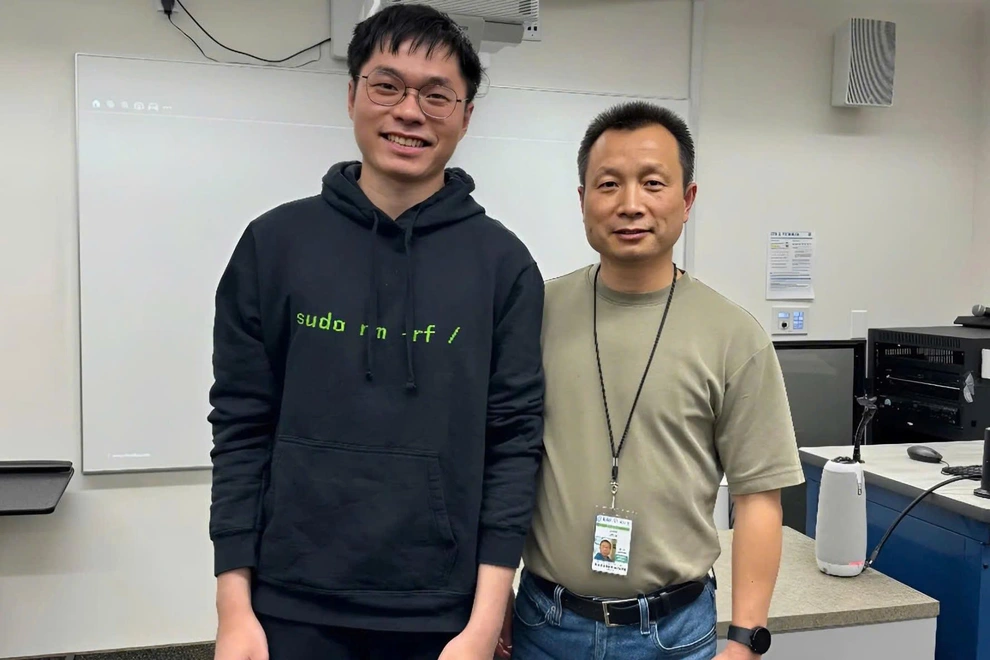




![[Photo] National Assembly Chairman Tran Thanh Man meets with Thai Prime Minister Paetongtarn Shinawatra](https://vphoto.vietnam.vn/thumb/1200x675/vietnam/resource/IMAGE/2025/5/15/e71160b1572a457395f2816d84a18b45)
![[Photo] Prime Minister Pham Minh Chinh receives Country Director of the World Bank Regional Office for Vietnam, Laos, Cambodia](https://vphoto.vietnam.vn/thumb/1200x675/vietnam/resource/IMAGE/2025/5/15/2c7898852fa74a67a7d39e601e287d48)


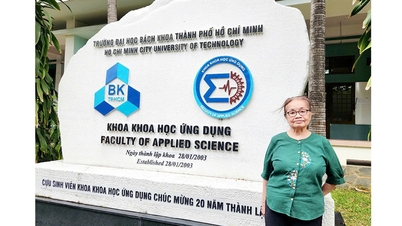



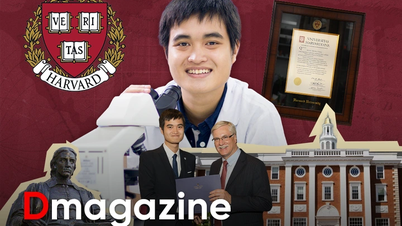























































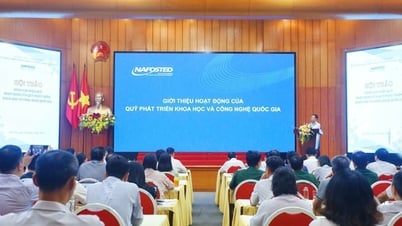

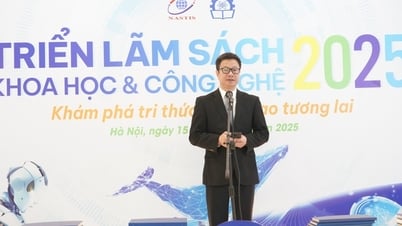

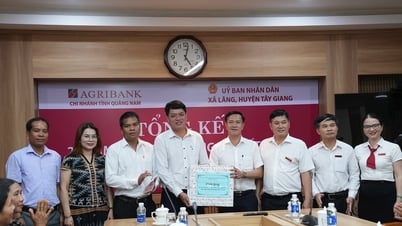



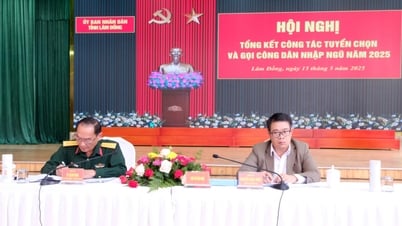















Comment (0)